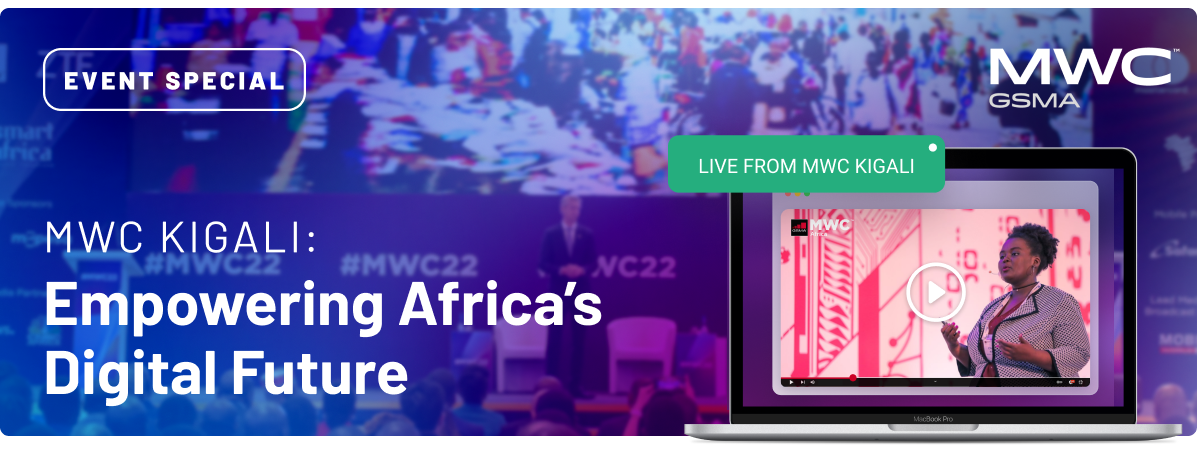As GSMA MWC Kigali 2023 takes center stage, it brings with it a wave of transformative initiatives and insightful discussions aimed at shaping the future of mobile connectivity in Sub-Saharan Africa.
The event, which began on Monday, Oct. 16, drew delegates for three days of enriching keynotes, roundtables, and groundbreaking announcements, has already witnessed key developments that promise to impact the region’s digital landscape.
One of the notable highlights of this event is the signing of a “We Care” Letter of Intent between GSMA and MTN. This agreement underscores their joint commitment to implement programs across the Sub-Saharan Africa ecosystem, with the overarching goal of enhancing the state of mobile connectivity in the region.
Read also: Experts highlight need for 5G deployment in Africa
Addressing the Usage Gap: Insights from Day Two
The second day of the conference kicked off with a media roundtable titled “Breaking Barriers: Closing the Usage Gap.” This discussion built upon the recent launch of the 2023 State of Mobile Internet Connectivity Report and insights shared during the Handset Affordability Summit on Day One.
Leading the conversation were GSMA experts Angela Wamola, Head of Sub-Saharan Africa, and Max Cuvellier, Head of Mobile for Development at GSMA. They were joined by Saint Doe, Chief Consumer and Digital Officer at MTN Rwanda. The roundtable session delved deep into the key barriers obstructing mobile internet penetration and offered unique insights on strategies to overcome these obstacles, ultimately paving the way for greater connectivity across the region.
An important milestone that marked the end of this insightful discussion was the signing of the “We Care” Letter of Intent. This agreement solidifies the partnership between GSMA and MTN in their quest to improve mobile connectivity in Sub-Saharan Africa, making it a priority for both organizations.
Proconics to install the first IdentiFlight system in South Africa
GSMA’s Pioneering Reports
GSMA has been actively publishing a series of reports during MWC Kigali 2023, each packed with research, insights, and case studies addressing crucial issues affecting connectivity levels and mobile internet usage across Africa. These reports aim to recommend industry-wide changes required to achieve a digitally transformed Africa. Here’s an overview of some of the key reports launched during the event:
5G in Africa 2023: This report, unveiled during the 5G Summit on Day 2, sheds light on the status of 5G technology in Africa. It revealed that 5G is still in its infancy on the continent, with an adoption rate of around 1% of total connections. However, projections suggest that this is set to grow to 8% by 2026. For this growth to materialize, the report emphasizes the importance of correctly managing 5G spectrum assignments in the region, highlighting 5G’s pivotal role in Africa’s digital transformation.
Mobile Tax Policy and Digital Development: Published on Day 2, this report unveils the role of mobile sector taxation in shaping the usage and coverage gaps across Africa. Notably, it emphasizes that taxes on consumers and operators directly affect the affordability of mobile devices and services. In fact, taxes currently constitute an average of 21% of the cost of a basic internet-enabled handset. The report collaborates with international organizations such as the World Bank and the IMF to propose tax-based recommendations that could help Sub-Saharan African countries balance government revenue generation with minimizing taxation’s negative impact on digital development.
Universal Service Funds (USF): On Day 3, the Universal Service Funds report was unveiled. It showcases research from GSMA and ATU on the effectiveness of USFs in Africa. Notably, the report highlights that the majority of countries in the region have either introduced or are in the process of introducing USF mechanisms to deploy mobile broadband infrastructure in commercially unviable areas. However, it also reveals that there is a growing trend of using USFs for non-infrastructure projects, often without a systematic approach. The report calls for industry-wide collaboration to define uniform guidelines and evaluation mechanisms for these non-infrastructure projects.
Tech Neutrality Report: GSMA has also released a Tech Neutrality Report, which examines the challenges the Sub-Saharan Africa region faces in its transition to clean energy.
GSMA MWC Kigali 2023 is not merely an event but a catalyst for change. The “We Care” partnership, along with the insightful reports, paves the way for a more connected and digitally transformed Sub-Saharan Africa, creating a path to a brighter and more connected future for the continent. Stay tuned for more updates from this exciting event.




